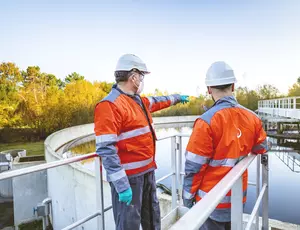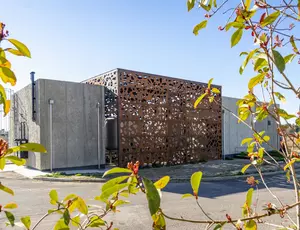Large-scale, highly-integrated process solutions utilizing evaporation and crystallization.
Overview
Evaporation is often used when membrane technologies become impractical at higher concentrations of total dissolved solids (TDS). With more than 1,000 installations in over 30 countries, Veolia Water Technologies has the largest number of successful installations and experience across the widest range of applications for industrial large-scale evaporation and crystallization equipment. This includes treatment of wastewater for zero liquid discharge (ZLD) by concentrating dilute streams, recycling and recovering water for reuse and environmental benefits. This also includes industrial crystallization for the production of premium crystalline chemicals from natural deposits, and recovering of valuable by-products from waste streams.
Based on the specific application, we offer several equipment technologies for evaporation that include:
- Falling film evaporator
- Natural circulation evaporator
- Rising film evaporator
- Forced circulation evaporator
- Enhanced forced circulation evaporator(turbulence enhancers for highly viscous feed)
The type of evaporator used will largely depend on the chemistry of the solution to avoid scaling of heat transfer surfaces.
From research and development, engineering and design to project execution with equipment supply, commissioning, start-up and performance testing, Veolia is a reliable partner in the development of each unique project providing clients proven HPD evaporation and crystallization systems for all industrial markets:
Mining
We design and supply systems for evaporites mining, coproducts from extraction & refining, by-products, and tailings and bitterns. Alumina spent liquor evaporation and oxalate removal systems.
Lithium and battery metals
We help producers and recyclers meet the technical challenges associated with the rising demand for efficient production or recycling of high-purity lithium and battery material salts for advanced electric battery manufacturing. We guarantee efficient production of battery-grade lithium, nickel, cobalt salts from brine, hardrock, clay, or recycled materials.
Pulp and paper
We address the challenges of black liquor evaporation systems through precipitator ash treatment and Chloride Removal Process (CRP™) for sodium recovery and non-process elements (NPE) removal.
Chemical processing
We provide evaporation and crystallization systems to produce more than 50 chemical compounds.
Fertilizer
Our HPD® systems allow for potassium salt crystallization, ammonium sulfate, nitrate compounds crystallization, phosphoric acid, Monoammonium phosphate (MAP) -Di-ammonium Phosphate (DAP).
Power
We perform integrated water and wastewater facilities characterized by ZLD, as well as systems for flue gas desulfurization (FGD) blowdown systems and Integrated Gasification Combined Cycle (IGCC) gray water systems.
Oil & gas
We offer Steam Assisted Gravity Drainage (SAGD) produced water treatment systems featuring Silica Sorption™ technology; Once through steam generator (OTSG) blowdown and WTB feed water treatment; produced water treatment for shale gas, coal seam gas (CSG), and tight oil; ZLD systems.
Feature and benefits

State-of-the-art research and testing facility

Process engineering team with decades of experience in new process development

Recovering of valuable products and by-products

Recycle and reuse of valuable water resources

Reduce effluent volume

Minimize waste volumes
Applications
Services
Veolia offers a wide range of services to meet the needs of customers related to their HPD® Evaporation and Crystallization systems:
- Spare parts and consumables, replacement, and upgrade of major process equipment, vessels/tanks and ancillary equipment
- Troubleshooting, system inspections & process evaluation (including non-Veolia equipment)
- System startup support and performance testing
- Service agreements for system “healthcare” that includes scheduled service, operation/process support, and operator training
Product range
Veolia offers a full range of crystallizers to suit the requirements of industry:
- HPD Growth™ crystallizer
- Forced circulation crystallization (mixed salt)
- MBD™ (Modular Bulldozer Design) System – modular forced circulation crystallizer
- PIC™ (draft tube baffle/ DTB) crystallizer
- MSMPR (mixed suspension, mixed particle removal)
- Falling film crystallizers
Potential evaporator configurations include:
- Mechanical vapor recompression (MVR)
- Multiple-effect evaporation (MEE)
- Multi-stage flash (MSF)
- Thermal vapor recompression (TVR)
Contact
The investment in an evaporation and crystallization process can be large so a comprehensive feasibility and testing process should be considered. Our state-of-the-art R&D facility has a wide array of evaporators and crystallizers including ancillary equipment that can be used to test and validate process solutions designed for commercial-stage production. This unique capability is an excellent tool for determining possible performance enhancements and evaluation of cost-effective approaches to the process.

Brian Muldoon
Sales VP Veolia Water Technologies North America
Frequently asked questions
How does industrial evaporation work?
Large-scale evaporators, also known as industrial evaporators, are used in various industries for the concentration or purification of liquids. They work on the same principle as evaporation on a smaller scale but are designed to handle larger volumes of liquid. The basic working principle of large-scale evaporators involves heating the liquid to be concentrated, causing it to evaporate and separate from the dissolved or suspended substances. The evaporated liquid is then condensed and collected, while the concentrated liquid or residue is left behind.
How do large-scale crystallizers work?
Large-scale crystallizers are used in various industries to separate and purify solid crystals from a liquid solution. The process involves controlled cooling or evaporation of the solution, allowing the desired solute to crystallize and separate from the remaining liquid. Large-scale crystallizers typically incorporate additional equipment and techniques to enhance the crystallization process. These may include heat exchangers to control temperature, agitators or mixers to promote uniform mixing and crystal growth, and filtration or centrifugation systems to separate the crystals from the liquid. The specific design and operation parameters of a large-scale crystallizer depend on the desired crystal properties, the solute and solvent characteristics, and the industry requirements.
Case Studies
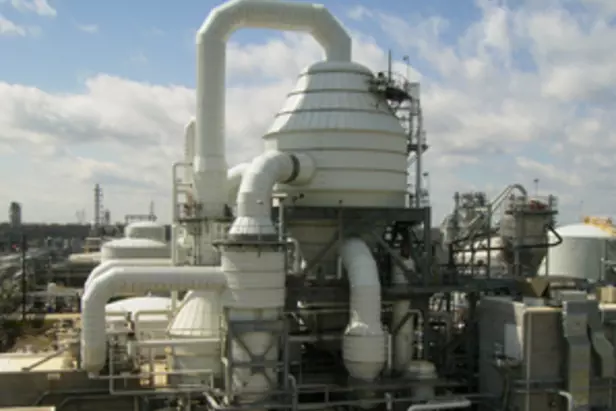
Driven by their joint success in supporting the rapid evolution and adoption of electric mobility, Toyota Tsusho Corporation, a global trading company in the Toyota Group, and Orocobre Ltd., an Australia-based industrial chemicals company, along with their joint venture Toyotsu Lithium Corporation awarded Veolia a comprehensive engineering, procurement, and construction (EPC) contract to build a new plant in Japan to supply lithium refining technologies. The Naraha facility was designed to convert 9,500 tonnes per annum (tpa) of technical-grade lithium carbonate into 10,000 tpa of purified, battery-grade lithium hydroxide.
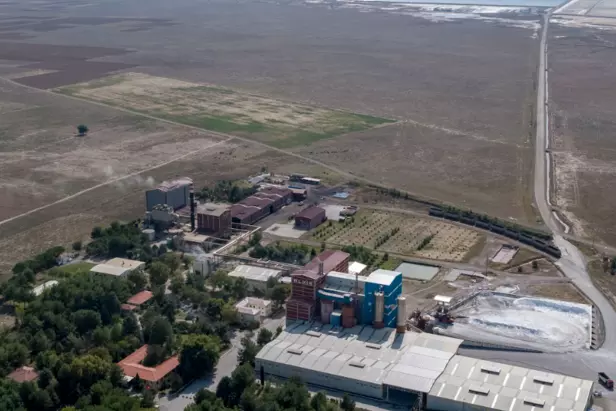
Alkim Alkali Kimya A.S. (Alkim), one of the largest sodium sulfate producers in the world, decided to invest in its Koralkim facility located in Turkey, in order to produce up to 50,000 tons per year of soluble-grade potassium sulfate. The company awarded Veolia a contract to supply HPD® crystallization technology to produce sulfate of potash (SOP) in crystalline, fully soluble form. Veolia’s solution, which also includes multiple-effect crystallizers to produce almost 35,000 tons per year of food-grade sodium chloride as a by-product, optimizes capital investment by utilizing Alkim’s existing cogeneration units.
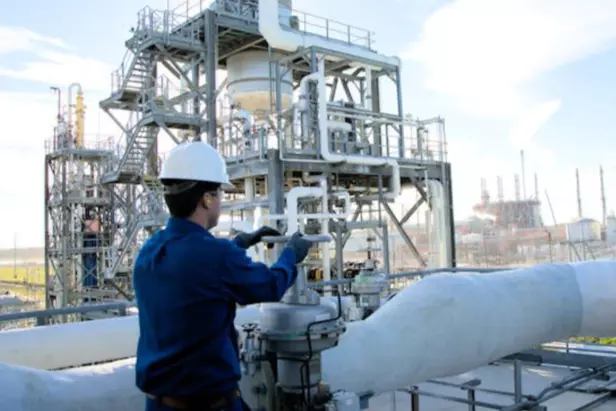
Shintech, Inc., the largest producer of polyvinyl chloride (PVC) in the United States, desired to become more vertically integrated in its production operations in addition to expanding its capacity to meet growing demand in the North American market. This vertical integration included the production of the PVC precursor vinyl chloride monomer (VCM) from a dedicated in-plant chlor-alkali facility located in Plaquemine.
In order to achieve the desired production goals, the company entrusted Veolia Water Technologies which provided HPD® salt purification system to generate the large quantities of high-quality sodium chloride as raw material needed to support the chlor-alkali plant operations.
Driven by mechanical vapor recompression (MVR), the system is designed with a capacity of 820,000 metric tons per year (mtpy) of high-quality sodium chloride making it to date the largest single-stage evaporated salt system in the world.



